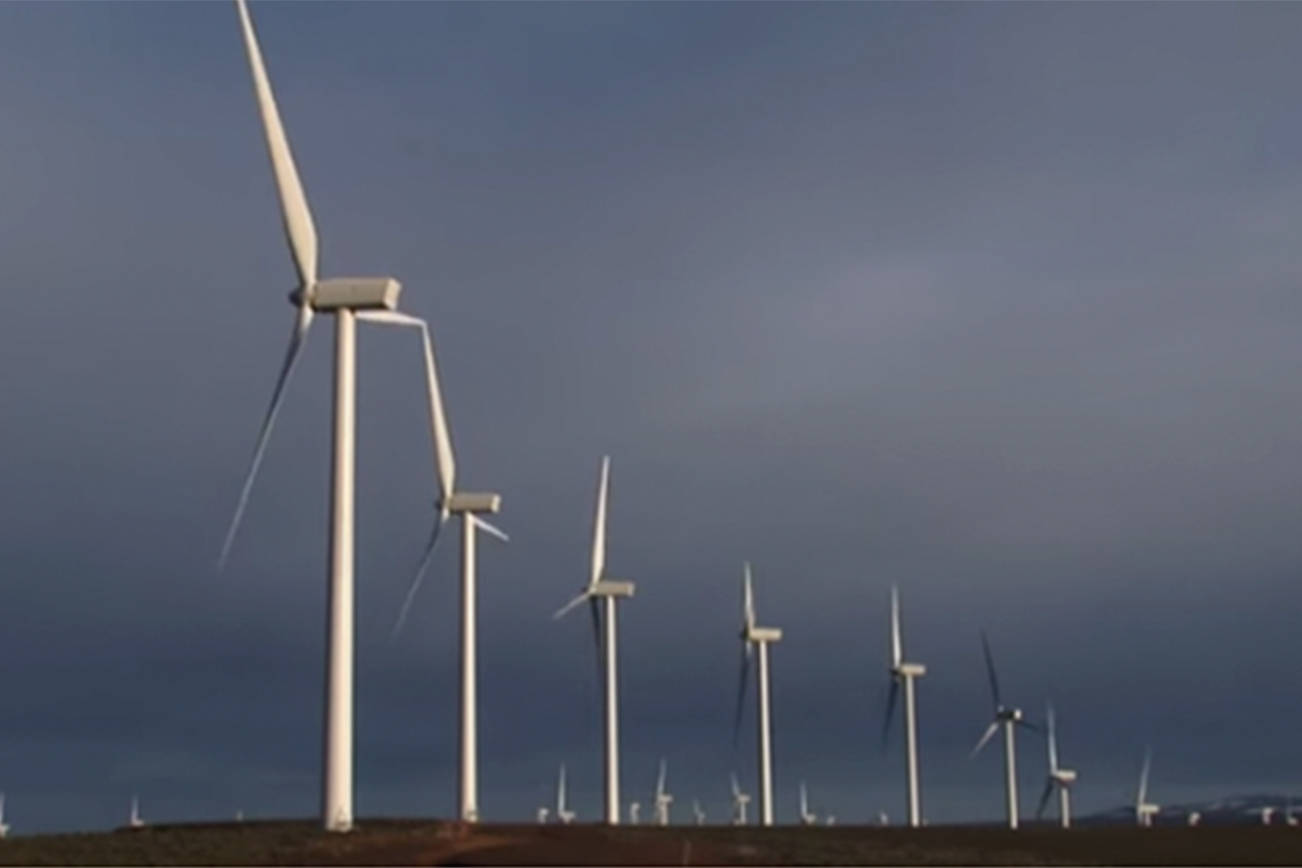Wind power is on the horizon for the city of Snoqualmie as soon as 2019. On Monday, April 10, the Snoqualmie City Council approved a 15-year agreement with Puget Sound Energy to join the company’s upcoming Green Direct Program, which will provide local governments and other large entities with electricity created from a new wind farm now being developed in the state.
Snoqualmie wasn’t the only city to agree to this new program. Recently, Bellevue, Mercer Island and Anacortes joined the program along with Western Washington University, King County and Sound Transit.
The Green Direct program, which has a locked annual rate increase of 2 percent, not only will provide Snoqualmie with clean energy, but will also allow the city to break even or possibly save money on sourcing electricity compared to other energy generation methods and rates. Because the standard PSE energy rates over the next 20 years are projected to increase the cost of electricity by up to 3 percent annually, the 2 percent rate in the Green direct program can save customers money over the course of the 15-year agreement.
Nicole Sanders, associate planner at the city of Snoqualmie, said in the first year, the initial rate increase could be up to 8 percent, but years 2 through 15 will stay at 2 percent. Electricity, she explained, makes up roughly one tenth of the operating and management budget of utilities. Sanders said the city already has funding to offset the startup costs of the city entering the program and PSE’s rates have dropped in 2017, further offsetting the first-year increase.
“The costs associated with this decision have already been integrated into existing rates because they are in line with projected increases of energy costs, what citizens are receiving as a result of this decision is being able to use city-operated utilities knowing that it will be climate-pollution-free, but without increasing their utility rates,” she said. “It’s for all city meters, facilities, police, fire, pump station, city hall, we already have 10kw of solar on city hall, basically every metered facility. We focused mostly on the money side, there was concern about wanting to make sure that this was a fiscally prudent move, that it wouldn’t affect rate payers for water and sewer, the rate already built in a 2 percent escalator because of inflation and cost increases over time.”
The program was introduced to the city by PSE, which is a partner of the King County-Cities Climate Collaboration (K4C) group. Because the city has worked on clean and renewable energy projects in the past, including the Solarize Snoqualmie initiative in 2015, PSE approached Snoqualmie to propose the agreement. Sanders said the amount of energy created by the wind farm would be equivalent to taking several hundred cars off of the road.
“Something like 650 passenger cars of pollution taken off the road for 15 years,” she said. “It’s nice to achieve cleaner outcomes for relatively little to no cost and possibly savings, that’s a good feeling.”
In a city press release Snoqualmie Mayor Matt Larson said the city was excited to further its goals in using energy from “green” sources.
“We were very excited at the opportunity to power all city facilities with green power,” Larson said. “Even more so because it may save us funds compared to the standard future options. We applaud PSE’s efforts to grow a collaborative new wind project, both reducing climate emissions and developing an asset that contributes to stable, low energy rates.”
More about PSE’s ‘Green Direct’ program
Green Direct, to provide sustainable power to cities, government institutions and major commercial customers, was recently approved by the Washington Utilities and Transportation Commission. Once complete, it will produce enough renewable energy to power nearly 30,000 Washington homes.
The largest consumer of the energy will be King County, with government entities like Western Washington University and Sound Transit also committing to the project.
Many cities have also signed up to cover all or part of their operations.Commercial customers include Target, Starbucks and REI.
“By partnering with Puget Sound Energy on their innovative Green Direct program, we’re able to power seven of our local Target stores with 100 percent clean energy,” said John Leisen, vice president of property management at Target.
Starbucks plans to have approximately 116 of its Washington State stores powered with green energy from PSE.
“As part of Starbucks ongoing Global Responsibility efforts, we’re proud to support the advancement of renewable energy sources in regionally relevant ways,” said Rebecca Zimmer, Starbucks director of Environmental Impact.
Outdoor co-op REI will power its headquarters and five local stores through the project. The co-op is involved in green energy efforts throughout the country and has kept its energy use nearly flat while doubling sales since 2008.
“We are constantly looking for innovative ways to increase renewable energy development. PSE’s Green Direct tariff directly benefits Washington, is a pioneering model for utilities nationwide, and supports REI’s success in continuing operate 100 percent on renewable electricity,” said Vik Sahney, REI’s divisional vice president of sustainability.
“A key aspect of a voluntary green energy program is that all of the costs and benefits must accrue to those customers who select the program, and are not shifted to those customers who are not involved,” said Tom MacLean, manager for customer renewable energy development.
It is also attracting national attention as one of eight utilities identified in the country as having an optional program like this one.
Residential customers can also support renewable energy production by participating in PSE’s long-running Green Power Program.


